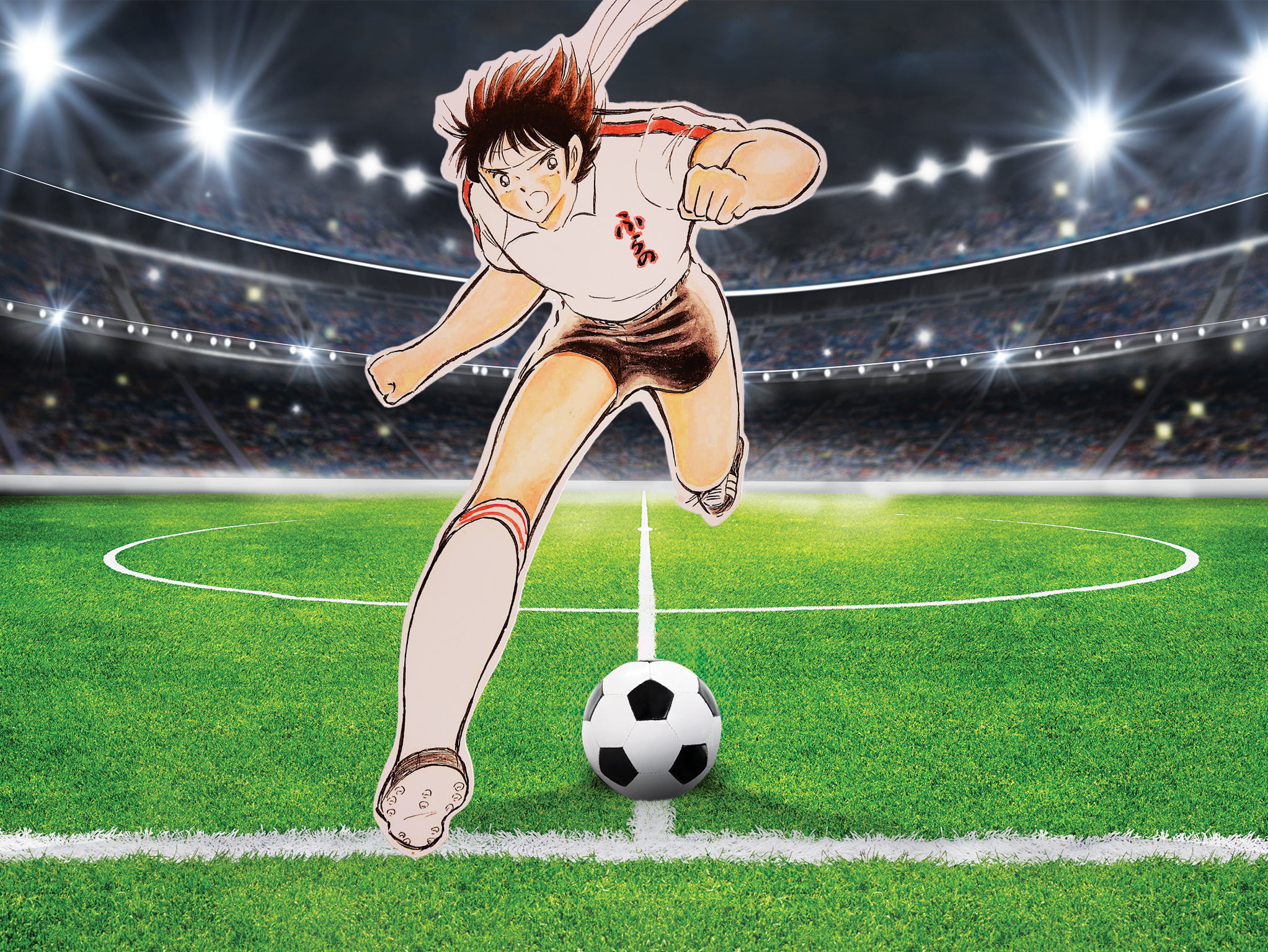In early April, the hit manga Captain Tsubasa officially ended after 43 years. Its creator, Yoichi Takahashi, announced that he will still produce rough storyboards starring the titular soccer prodigy, but the comic, as a whole, is over. As of this writing, the world isn’t exactly Tsubasa-less, as the second season of the 2018 anime revival series is still airing, but even that will one day come to an end as the source material has reached its conclusion. Still, while Captain Tsubasa is, undoubtedly, the most famous soccer manga and anime in the world, it’s far from the only one, and there are plenty of fun shows that can fill that Tsubasa void by doing things that Yoichi Takahashi’s creation didn’t or couldn’t.
1. Blue Lock
Soccer is a group sport that’s great for teaching teamwork. It’s the aspect that real junior soccer clubs around Japan emphasize the most. And yet, the players most kids admire and strive to be like are the forwards who specialize in scoring goals, better known in Japan as strikers. It takes a kind of “first among equals” mentality to be a successful striker. One almost needs to be … an egoist working within a team. And that’s the hook of the Blue Lock anime, named after an in-universe training regiment meant to find and nurture the greatest egoist striker in Japan.
A big appeal of Blue Lock is that it goes against every sports anime and sports media cliché out there. This is not a story where, at the end, the real trophy will be the friends and experiences everyone made along the way. This show acknowledges and analyzes the paradox of the relentless pursuit of individualism in group activities and how these opposite ideas have to work together to make sports happen. It’s honest, it’s refreshing and it has great animation. What more do you need?
2. Farewell, My Dear Cramer
2011 and 2012 were amazing years for female sports in Japan. Everywhere you went, you heard about Nadeshiko, the country’s women’s national soccer team, which became the first Asian team to win the FIFA Women’s World Cup, soared through the qualifiers for the 2012 Summer Olympics — and came thiiiis close to winning the whole thing. It lit a fire that set many young women on the path to soccer. The Farewell, My Dear Cramer (2021) anime, based on a manga by Naoshi Arakawa, captures the spirit of those years with a story about taking a previously underperforming girls’ soccer team to the top.
The series does hit many familiar sports anime beats along the way, but it also has some things to say about a kind of soft prejudice against women’s sports manifesting itself as lower expectations, which sometimes get internalized by the female players themselves. The best part of the anime, though, is that it doesn’t insist that men’s and women’s soccer is exactly the same. It acknowledges the differences and focuses on what makes the latter unique. It’s the kind of message we rarely get from sports movies and shows, and it helps make Farewell, My Dear Cramer an anime like no other.
3. Clean Freak! Aoyama-kun
A prodigy joins a failing soccer club and helps it rise through the ranks — but doesn’t allow the rest of the team to touch him and feels uncomfortable in the presence of others. While seemingly an excellent candidate for the Blue Lock program, in any other story, you’d be forgiven for thinking the story a little cliché. Obviously, the stuck-up genius will have to undergo a transformation, let others in and learn the value of teamwork, right? Nah, Aoyama, the soccer prodigy, is actually quite humble and very hardworking, and the only reason he doesn’t allow others to touch him is because he is a massive germaphobe. There’s more to the anime than this one gag, though.
Aoyama is a rare example of a clearly neurodivergent anime character who is not relegated to a purely comedic role. We get a lot of quiet moments with him, getting to see the world through his eyes, growing to understand that Aoyama isn’t “broken” and in need of fixing and that his disability isn’t a magic power. He’s just a little different from most people, and he must work hard (perhaps harder than most) to carve out a place for himself in the real world. The sports action in the series is great, but it’s the refreshing look at neurodivergent people that will really stay with you.
4. The Knight in the Area
This is one bonkers anime, and sadly, there’s no way to get people interested in it without spoiling it a little. So here it goes: the show is about a promising soccer player who had to quit the sport but returns to it after he and his prodigy brother are hit by a truck and the main character receives his older sibling’s heart.
This seems to transfer some of big bro’s talent to the hero, as well as fix an old injury, and from that insane point, the anime becomes a Very Good soccer show that’s elevated to another level whenever you remember, “oh yeah … this is an inspirational sports take on The Hands of Orlac, the classic scare flick where a pianist gets a hand transplant from an executed criminal and seems to inherit his murderous tendencies as well.” So come for the sports action and intentional comedy but stay for the unintentional comedy with a hint of horror.
5. Kazu & Yasu Hero Tanjou
Kazuyoshi Miura’s professional soccer career started in 1986, a whole year before Messi was even born. In 2017, the legend of Japanese soccer and probably its first superstar, known by fans as “King Kazu,” became the oldest player to score in a professional match and continues to be the oldest working professional soccer player in history. Yet for all his incredible achievements, King Kazu isn’t exactly a household name around the world.Kazu & Yasu Hero Tanjou (1995), an anime biopic about Kazuyoshi and his older brother Yasutoshi (who played professionally but hung up his cleats to coach), was undoubtedly conceived to change that. And even if it hasn’t exactly succeeded, it’s not too late to pick it up now, learn about the history of Japanese soccer and enjoy a fun animated story about determination and perseverance.








